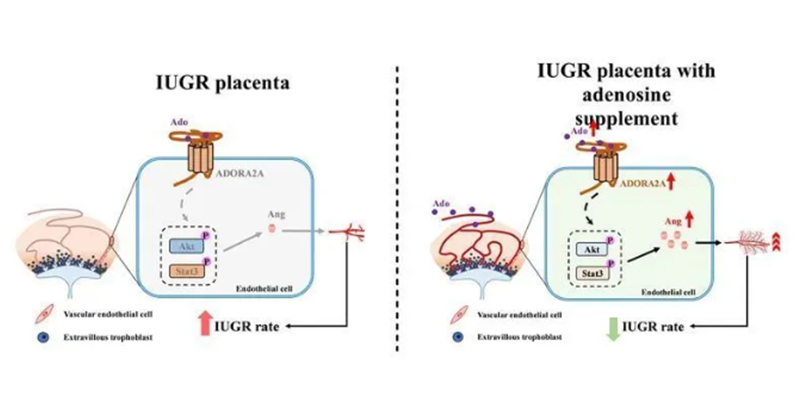Associate Professor Tan Chengquan, an Indian academician from the School of Animal Science of South China Agricultural University, conducted research on the scientific issue of "the development of the sow's placenta empowers the growth of fetal pigs". Previous studies have found that placental oxidative stress and insufficient angiogenesis in mid-pregnancy are important triggers for the formation of IUGR pigs.
The reproductive performance of sows is a key factor in determining the productivity and economic benefits of pig farms. With the rapid development of my country's pig industry, while the number of sow litters continues to increase, the incidence of intrauterine growth retardation (IUGR) in fetal pigs is also increasing (as high as 15-20%). IUGR pigs have low survival rates and slow growth rates, which reduce the reproductive performance of sows and seriously affect the development of my country's pig industry. Pigs are typical livestock with multiple fetuses, and each embryo requires an independent placenta to supply nutrients and oxygen. Therefore, the development of placental blood vessels is a prerequisite for ensuring nutrient supply and normal growth of fetal pigs.

Associate Professor Tan Chengquan, an Indian academician from the School of Animal Science of South China Agricultural University, conducted research on the scientific issue of "the development of the sow's placenta empowers the growth of fetal pigs". Previous studies have found that placental oxidative stress and insufficient angiogenesis in mid-pregnancy are important triggers for the formation of IUGR pigs (Advances in Nutrition 2021). NOX2 was identified as the key target of placental oxidative stress-damaged angiogenesis, and NOX2/STAT3 was revealed. Signaling pathways inhibit placental angiogenesis, leading to the molecular mechanism of IUGR pig formation in different parts of the uterus (Redox Biology 2021). Based on the fact that the intrinsic mechanism of early placental angiogenesis is not fully understood, the applicant relied on an in vitro angiogenesis model that simulated the IUGR pig placental microenvironment. This study further revealed that Adenosine/adenosine A2a receptor (ADORA2A) signaling promotes placental angiogenesis. The new mechanism of alleviating the occurrence of IUGR provides a scientific basis for the creation of nutritional programs that promote placental angiogenesis and the growth and development of fetal pigs.
The reproductive performance of sows is a key factor in determining the productivity and economic benefits of pig farms. With the rapid development of my country's pig industry, while the number of sow litters continues to increase, the incidence of intrauterine growth retardation (IUGR) in fetal pigs is also increasing (as high as 15-20%). IUGR pigs have low survival rates and slow growth rates, which reduce the reproductive performance of sows and seriously affect the development of my country's pig industry. Pigs are typical livestock with multiple fetuses, and each embryo requires an independent placenta to supply nutrients and oxygen. Therefore, the development of placental blood vessels is a prerequisite for ensuring nutrient supply and normal growth of fetal pigs.

Associate Professor Tan Chengquan, an Indian academician from the School of Animal Science of South China Agricultural University, conducted research on the scientific issue of "the development of the sow's placenta empowers the growth of fetal pigs". Previous studies have found that placental oxidative stress and insufficient angiogenesis in mid-pregnancy are important triggers for the formation of IUGR pigs (Advances in Nutrition 2021). NOX2 was identified as the key target of placental oxidative stress-damaged angiogenesis, and NOX2/STAT3 was revealed. Signaling pathways inhibit placental angiogenesis, leading to the molecular mechanism of IUGR pig formation in different parts of the uterus (Redox Biology 2021). Based on the fact that the intrinsic mechanism of early placental angiogenesis is not fully understood, the applicant relied on an in vitro angiogenesis model that simulated the IUGR pig placental microenvironment. This study further revealed that Adenosine/adenosine A2a receptor (ADORA2A) signaling promotes placental angiogenesis. The new mechanism of alleviating the occurrence of IUGR provides a scientific basis for the creation of nutritional programs that promote placental angiogenesis and the growth and development of fetal pigs.

